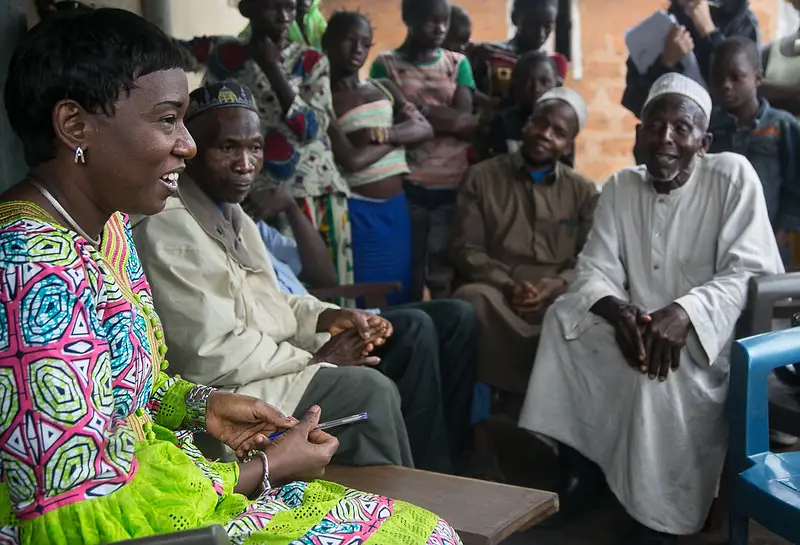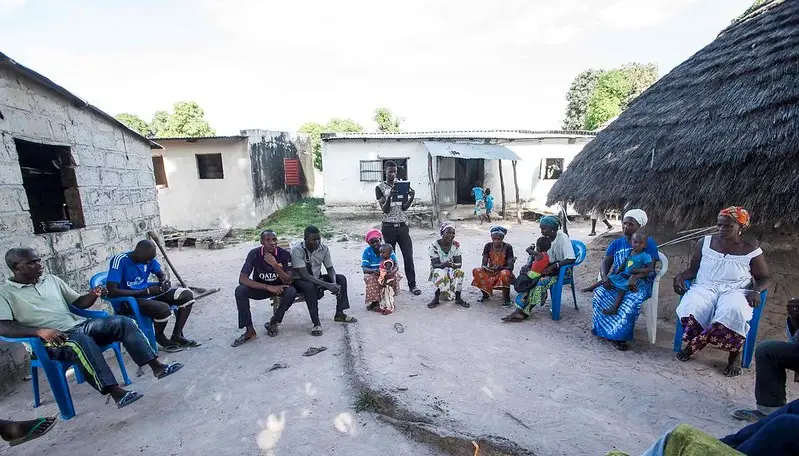
Photo credit: Patrick Adams for RTI International.
Integration is a popular topic in international development these days. And while it can mean different things to different people – integration of services, systems, policies, strategies and even program design – the central goal of integrated governance is to improve sectoral outcomes.
But what does integrated governance look like in practice? What is the development community learning about integration’s role in progress?
RTI has been at the forefront of exploring these questions for the past 20 years, including the links between integrated governance, inter-sectoral collaboration, and health outcomes. In this post, we share lessons learned through two RTI-led USAID projects in Guinea and Senegal that helped country partners leverage governance approaches to strengthen their health systems.
From tackling challenges that held back development in Guinea to improving health governance in Senegal, the bottom line is that integration – in these cases integrated governance and health – can make an impact.
Integrated governance improves health service delivery in Guinea
The USAID Multi-Sectoral Interventions to Advance Democratic Governance in Guinea project leveraged multi-sectoral interventions to address the most significant obstacle to the country’s development: poor governance. RTI placed governance at the center of this project’s interventions – an innovative approach at the time as governance was rarely the central strategy for achieving sectoral objectives. To review the effectiveness of this strategy, RTI conducted a qualitative survey of project stakeholders to explore potential links between governance and sectoral outcomes.
By integrating governance into this health sector program, the project was able to improve service delivery and establish new attitudes and avenues for local government responsiveness and citizen engagement.
The reported impact of governance improvements across communes surveyed included:
- Greater transparency in communal council operations.
- Greater participation by citizens and collaboration between commune officials and civil society.
- Greater accountability of communal officials to citizens.
These changes translated into positive results in the health sector. Local health committees gained greater oversight of the management and functioning of health centers, which led to improvements in health services. Empowered health committees monitored health center revenue and advocated for change.
As a result of integrated governance efforts, health centers adopted more transparency by posting their fees, which made them more predictable and stable. Health providers also did a better job respecting patient privacy while communes bought equipment, financed midwives, and renovated health centers in response to health committee advocacy as well.
Critical interventions leading to these changes included the creation of innovation circles that served as consultation mechanisms between citizens, elected officials, and civil servants – an approach that we have incorporated into other programs given its effectiveness.

Photo credit: Xaume Olleros for RTI International
Integrated governance improves health service readiness and delivery in Senegal
Building from lessons learned in Guinea, RTI is implementing the USAID Governance for Local Development (GoLD) project in Senegal. The project focuses on improving local government responsiveness to citizens’ needs and fostering community participation in the delivery of public services across sectors, including health.
Working together with other health sector programs, GoLD strengthened the governance capacity of local governments and health governance structures alongside health sector programs that worked directly with communities and health facilities. RTI conducted a quasi-experimental study of that integrated governance approach to determine if and how it affected health service delivery.
In comparing treatment communes (which received integrated health and governance interventions) to control communes (with received health interventions only), we found that integrated governance strengthened health service readiness, specifically health facility access and quality. Health facilities in treatment communes were more likely to stay open and have better infrastructure while staff were more likely to engage in proper waste disposal. The study examined some possible mechanisms for these effects. Health committees reached with governance interventions were more actively working to improve health service delivery by engaging municipal decision-makers. They took direct action more often to resolve problems and used municipal funding more often to do so.
These findings highlight that integrated governance can deliver concrete improvements in health service readiness that go beyond what a sectoral program could achieve alone. Prior research also suggests that stand-alone governance programs would be unlikely to deliver similar results on their own too. Integration delivers more.
Learn more about integrated governance and its impact on health outcomes
As global health funding and activities must contend with compounding issues like climate change, food and fuel crises, and more, we need to get smarter and more targeted with how we turn the concept of integration into action. Integrating governance into health can lead to improvements in health service delivery, ultimately strengthening health systems.
Join us at the Seventh Global Symposium on Health Systems Research on November 4 for a panel presentation and discussion on these two studies to learn more. In the future, RTI plans to undertake further research in this area to uncover more lessons for integrated health care. Stay tuned for future findings!
